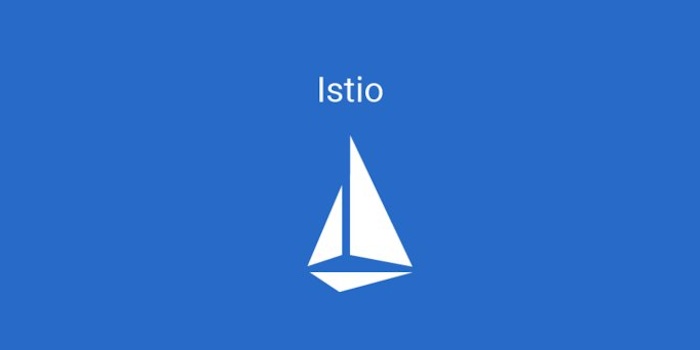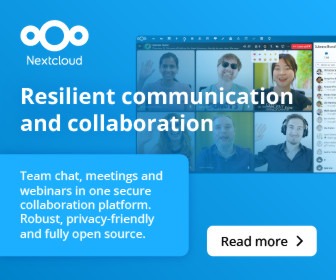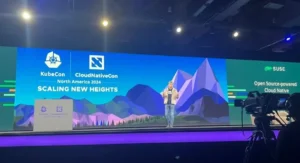After seven years, we’re reviving our Friday FOSS Week in Review column. This week we’re covering Istio’s graduation at CNCF, Oracle’s attempt to take the moral high ground against Red Hat, and Elon Musk’s latest adventure.

Guess what, everybody? We’re back.
You might remember that from FOSS Force’s start back in the aughts until about 2017, FOSS Force always ended the week with FOSS Week in Review, where we reviewed that week’s FOSS news that we didn’t cover with full articles. I wrote the column for the first many years, which was then picked up by Larry Cafiero who did the reporting until about the time that we cancelled the column.
Well, as I said, we’re back.
We’ve been beefing up our coverage in general here on FOSS Force (as you might have noticed), and thought it was time to once again make sure that we at least mentioned the important stories of the week that didn’t get the full coverage treatment.
Istio Graduates
This week the Linux Foundation’s Cloud Native Computing Foundation announced that Istio, a popular service mesh that was initially started by Google, has “graduated.”
In Linux Foundation-speak, “graduated” means it’s no longer an “incubating project,” meaning it’s no longer under the close watch and guidance of its mommy, CNCF, but is now allowed to walk and talk and make decisions on its on.
As a graduated project, it remains under the CNCF umbrella where it reaps the benefits that the larger organization brings — such as help with the bookkeeping and stuff like that.
In case you don’t know, Istio is perhaps the most capable of the services meshes that are available, and is used as part of the cloud infrastructure in many Fortune 500-style companies. What’s a service mesh, you ask? We’ll, they’re not very sexy but they’re an important part of any cloud native infrastructure that utilizes containers. As Zachary Butcher with Tetrate told me back in 2019 when I was putting together an in-depth look at Istio, they’re kind of a traffic cop for Kubernetes containers.
“It provides things like service discovery, fine-grained traffic control, and things like per-request retries,” he said.
In other words, it kinda makes sure that your containers don’t crash in transit, and then helps them find a place to park and points them to the right room in the right building when they reach their destination.
This graduation is long overdue. Although the original plans were to contribute Istio to Linux Foundation, at one point Google had a change of mind and announced that it was going to keep the project in-house, which really ticked-off its partners in the project, especially IBM which had contributed a lot of its IP.
Anyway, after a change in leadership at Google Istio went to CNCF, and Google and IBM became besties again.
Oracle Bitch-Slaps Red Hat
If you were hoping that you could get through the week without yet another story about the fallout from Red Hat’s decision to lock-up the code behind Red Hat Enterprise Linux in order to keep downstream distributions such as AlmaLinux and Rocky Linux from using it — you loose. Sorry.
One of the stories we didn’t have time to cover this week involves Oracle taking the gloves off and going after Red Hat, sort of like Will Smith went after Chris Rock at the Oscars a couple of years back.
If you don’t know: for nearly 20 years Oracle has offered its own RHEL clone which it calls Unbreakable Linux and this week Big Red called out Little Red for a verbal slug-fest. In a someone ironic move, the company wrote an article called Keep Linux Open and Free – We Can’t Afford Not To, in which it took Red Hat to task for its “uncompetitive” actions.
“IBM doesn’t want to continue publicly releasing RHEL source code because it has to pay its engineers?” the company asked. “That seems odd, given that Red Hat as a successful independent open source company chose to publicly release RHEL source and pay its engineers for many years before IBM acquired Red Hat in 2019 for $34 billion.”
Hmmm. As much as I dislike Oracle, that sounds suspiciously like a point I might make.
Big Red went on to offer Little Red a suggestion, which it addressed to Red Hat’s adopted daddy, Big Blue.
“Finally, to IBM, here’s a big idea for you. You say that you don’t want to pay all those RHEL developers? Here’s how you can save money: just pull from us. Become a downstream distributor of Oracle Linux. We will happily take on the burden.”
I’m laughing so hard I’m peeing my pants — but maybe I shouldn’t be saying that here.
Musk’s Own AI Chatbox
The final item this week isn’t really about open-source, but since its centered on the open-source community’s current favorite person to hate, I figured we’d go for it.
On Wednesday Elon Musk evidently decided he’d wrecked enough havoc at Twitter and that he needed to find another business to destroy, so he decided to take on OpenAI, which he’s publicly criticized in the past.
He’s started a company, xAI, which he says will be focused on “the true nature of the universe,” which sounds like something I would’ve focused on back in my hippie stoner days. He’s going to be leading the core team himself — of course he is, because why not — and is reported to have already purchased a large number of GPUs to take with his Prozac get things started.
He’s also already got a lot of heavy hitters on the payroll, such as Igor Babuschkin (formerly of DeepMind), Manuel Kroiss (DeepMind), Tony Wu (University of Toronto), Christian Szegedy (Google Research), Jimmy Ba, Toby Pohlen, Ross Nordeen, Kyle Kosic, Greg Yang, Guodong Zhang, and Zihang Dai.
Ars Technia seems plenty impressed:
“Previous machine-learning achievements by this group include the Adam optimizer, Batch Normalization, Layer Normalization, Transformer-XL, Autoformalization, and the discovery of adversarial examples that trick AI models into producing incorrect outputs.”
It just goes to show what you can do when you’ve got bunches of billion dollar bills lying around.
Well, that’s going to do it for this week. See you next time! In the meantime, may the FOSS be with you.
Christine Hall has been a journalist since 1971. In 2001, she began writing a weekly consumer computer column and started covering Linux and FOSS in 2002 after making the switch to GNU/Linux. Follow her on Twitter: @BrideOfLinux










Let me get this straight….Oracle took RHEL, made “Unbreakable Linux” as a “downstream release”….and now advocates that Red Hat just take “Unbreakable Linux”, downstream it and make it RHEL?
I am not quire sure where Oracle thinks the real work might get done….but hey…
Chutzpah is Larry Ellison’s strong suit. 😉
Let’s do more journalism and less hating. The Musk focus says more about you than him. Thank you.